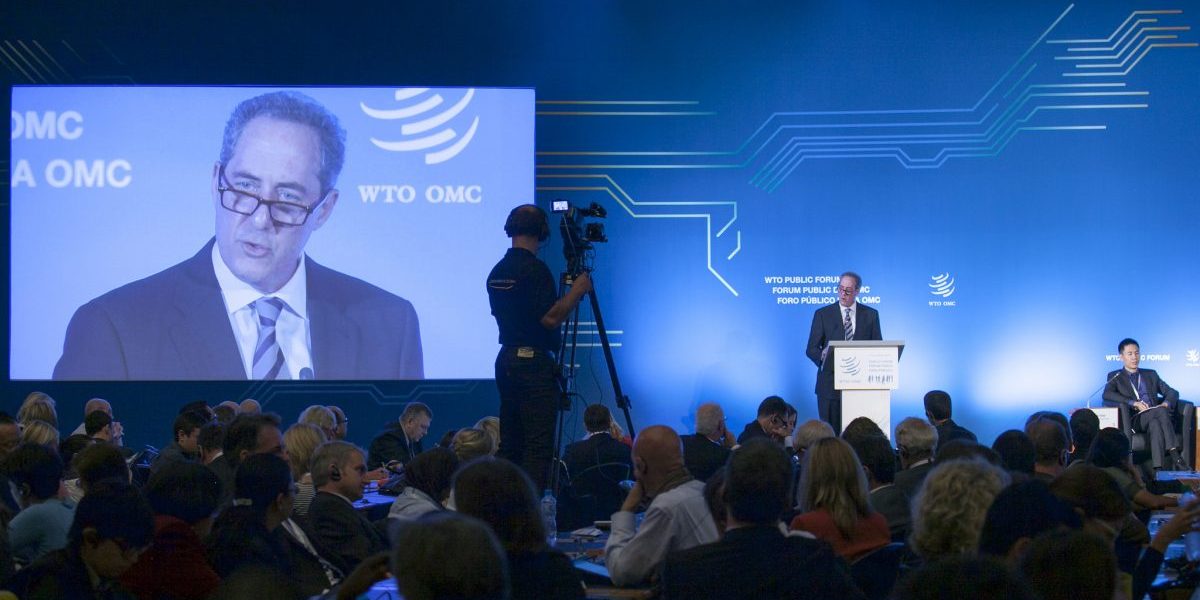The year started with reassuring noises from US and EU trade negotiators following bilateral presidential meetings. These concerned the possibilities for mutual compromise on the pivotal farm trade agenda.
But familiar obstacles stand in the way. The Democrat congress seems less friendly to free trade than their Republican predecessors, although this still has to be tested. Movement on the trade front, particularly securing an extension of President George W Bush’s trade promotion authority (by which Congress delegates negotiating authority to the president and consents not to amend trade agreements) will require bipartisan support.
But bipartisanship is in short supply in Washington these days, while Democrats are looking to hobble Bush in the two areas where a lame-duck president traditionally has some autonomy: foreign policy (read Iraq) and trade policy.
The former has “surged” to the forefront of political debate as the neoconservatives regain some of their influence over Iraq policy.
Will Bush have to expend most of his dwindling political capital in his effort to salvage something from his Iraq adventure? How much of this capital will be expended on a domestic agenda now hostage to the Democrat congress? And will any be left for securing renewal or an extension of trade promotion authority, which expires at the end of June? Currently this seems unlikely, meaning that come July the US will most likely opt out of international trade negotiations at least until 2009, when a new administration assumes the reins.
Compounding this, congress is in the early stages of putting together a new Farm Bill (historically legislated every five years since the 1930s). Previous farm bills have dispensed pork on a large scale to (mostly) five commodity groups: corn, cotton, oilseeds (soya), wheat and rice.
This time around a number of other interest groups are angling for a share: fruit and vegetable growers, bio-fuel producers and users, nutrition advocates, anti-poverty campaigners, and, of course, America’s trade partners.
These pressures, mostly for more spending, run up against hard budget constraints and the pressure for compromise in the World Trade Organisation (WTO) negotiations. How this will turn out is anyone’s guess.
Those levels (about $22bn) are not conducive to a Doha Round agreement (now reckoned to be around $15bn-$17bn).
Meanwhile the European Commission (EC) faces its own constraints. A range of member states (14 at the last count) opposes making more concessions until the US demonstrates that it is prepared to take the knife to its farm spending. And in April, France which is this group’s primary promoter, will elect a new president. This political alignment renders any concessions by the EC in the absence of prior moves by the US extremely unlikely.
Are there any lights on the horizon in this gloomy prognosis?
One glimmer is the potential for the US (and EC) to be taken to dispute settlement.
Furthermore, Canada has now requested consultations on US corn subsidies (accounting for approximately 45% of total payments) – an action which SA reportedly may join.
While US commodity producers and Congress would like to discount these pressures while formulating the Farm Bill, that will be increasingly difficult.
But the danger is that if pushed too far this “judicial activism” could generate a backlash in the US, thereby undermining congressional support for the WTO as an institution.
It may also invite retribution. In SA’s case, our preferential access to the US market via its generalised system of preferences has just been renewed for two years. About a quarter of our exports to the US enter under this system.
Then there is Germany’s presidencies of the EU and the G8 (world’s eight richest countries). Chancellor Angela Merkel has already signaled her intentions by announcing a renewed transatlantic trade agenda promoting regulatory convergence with the US.
Given the failure of a similar initiative 10 years ago its provenance is rather uncertain. But if Nicolas Sarkozy, the conservative candidate, ascends to the French presidency its prospects may improve. Sarkozy is known to be relatively sympathetic to the US. If this thrust succeeds it would increase pressure for a trans-Atlantic compromise on agricultural policy to unlock the Doha Round.
The trans-Atlantic motor is in trouble. Even if compromises could be found, big developing countries would still have to be brought on board and sign up to an ambitious farm and industrial tariff liberalization package. Never mind the vast bulk of poor developing countries resisting any liberalisation at all.








